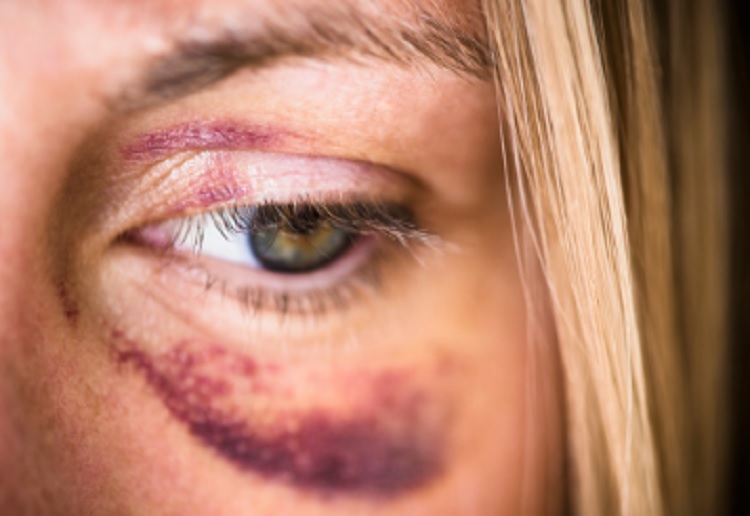Whether teams win or lose, sporting events lead to spikes in violence against women and children.
Melanie Pescud, Australian National University
With the FIFA World Cup coming to a conclusion in Russia, not to mention the final match in the State of Origin rugby series in Australia and Wimbledon in the UK, it’s been a big week for sports.
While sports can bring fans together in celebration and camaraderie, researchers have documented a more troubling trend that accompanies these major events – a frightening increase in domestic violence.
In Australia, data released by the New South Wales Bureau of Crime Statistics last month revealed that on State of Origin game nights, there is a staggering 40.7% surge in domestic assaults in NSW.
This spike in violence against women and children has remained consistent during State of Origin matches from 2012-17, the crime statistics show.
Increases in family violence have also been documented during the AFL Grand Final and Melbourne Cup. Internationally, there are spikes in domestic violence associated with the World Cup and even smaller events, like the 10-day Calgary Stampede and the Grey Cup Final in Canada.
Read more:
Out of the shadows: the rise of domestic violence in Australia
And statistics show that increases in violence are roughly the same whether perpetrators’ teams win or lose.
Researchers at Lancaster University in the UK studied family violence during the World Cups in 2002, 2006 and 2010, and found a 26% rise in domestic assaults when England won or drew, and a 38% jump when the team lost. Domestic violence incidents were up 11% the day after an England match – win or lose – suggesting a carry-over effect, too.
Another study conducted at the University of East London confirmed these findings.
Fearing a repeat of violent outbreaks during this year’s World Cup, the UK’s National Centre for Domestic Violence launched a confronting campaign with the tagline “If England gets beaten, so will she”.
Too much alcohol
So what is going on here? Why are events like these triggering such violent responses from male sports fans?
Here’s what these events have in common: a volatile mix of alcohol (and sometimes drugs), gambling, toxic masculinity, heightened emotions, tribalism and competition. While women also drink at sporting events, this mix of factors causes men being the ones predominantly responsible for violence against their partners and children following games.
Sporting bodies and alcohol brands also shoulder some of the blame for not doing enough to discourage excessive drinking by fans.
Read more:
Time to cut the ties between alcohol and sport
There is a clear association between alcohol advertising and risky drinking. A study published earlier this year also showed that alcohol brands blatantly use the association of sports with beer and other spirits to encourage consumption.
Knowing this, major sporting bodies like FIFA and the National Rugby League in Australia need to take steps to cut back on their fervent marketing and promotion of alcohol during their events.
More sporting leagues and high-profile athletes should also be leading the effort against domestic violence. The NRL has placed some focus on this issue with its “Voice Against Violence” campaign. But given the clear links between alcohol consumption and domestic violence, the NRL’s aggressive promotion of alcohol seriously undermines this advocacy work and brings into question its commitment.
It is also worth noting that the NRL refused to comment on the release of data showing the spike in domestic violence during the State of Origin.
One mechanism for sporting bodies to develop more comprehensive strategies in this area is the national framework for action to prevent alcohol-related family violence, launched by anti-domestic violence campaigner Rosie Batty and the Foundation for Alcohol Research and Education in 2015.
The framework proposes 20 ways to combat alcohol-related family violence, including measures to limit the availability of alcohol and stricter regulations on the promotion of alcohol. One specific proposal is to introduce national legislation modelled on the Tobacco Advertising Prohibition Act to phase out alcohol advertising in the media, as well as the type of outdoor ads and sponsorships seen at major sporting events.
The disturbing reality is that behind these statistics are real people – the victims of domestic abuse. More women and children likely became victims after Wednesday night’s State of Origin game and following England’s loss to Croatia in the World Cup semifinals.
![]() We cannot wait until the next big event, be it this year’s AFL Grand Final or the 2022 FIFA World Cup, before taking meaningful action to address it.
We cannot wait until the next big event, be it this year’s AFL Grand Final or the 2022 FIFA World Cup, before taking meaningful action to address it.
Melanie Pescud, Visiting Fellow, School of Regulation and Global Governance (RegNet), Australian National University
This article was originally published on The Conversation. Read the original article.




















-

-
-
Blossom said
- 13 Sep 2018
-

-
-
Ellen said
- 19 Aug 2018

-

-
-
Blossom said
- 22 Jul 2018
-

-
-
MuthaNita said
- 20 Jul 2018
-

-
-
sambii said
- 19 Jul 2018
-

-
-
becstalou said
- 14 Jul 2018
-

-
-
mom90758 said
- 14 Jul 2018
-

-
-
nadine_hill said
- 14 Jul 2018
-

-
-
mom93821 said
- 14 Jul 2018
-

-
-
mom265671 said
- 13 Jul 2018
Post a comment9:00 pm
7:46 am
4:01 pm
6:54 am
12:42 am
7:34 pm
-

-
-
mom93821 replied
- 15 Jul 2018 , 6:15 am
Reply5:40 pm
7:25 am
3:09 am
11:51 pm
To post a review/comment please join us or login so we can allocate your points.